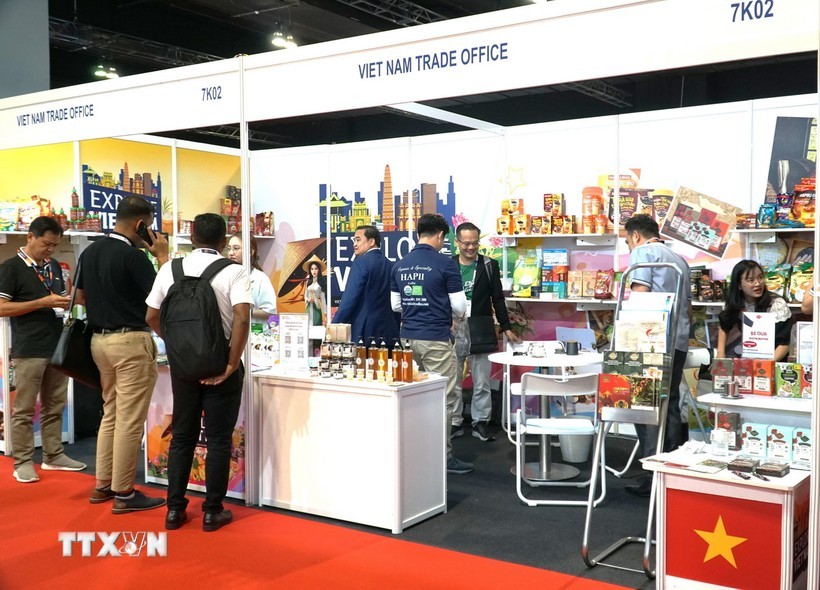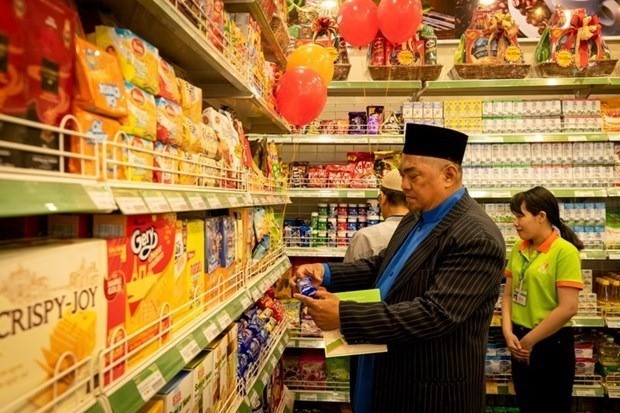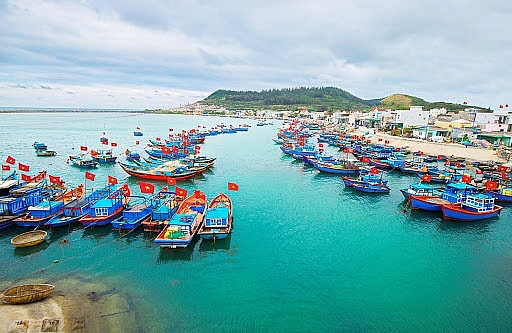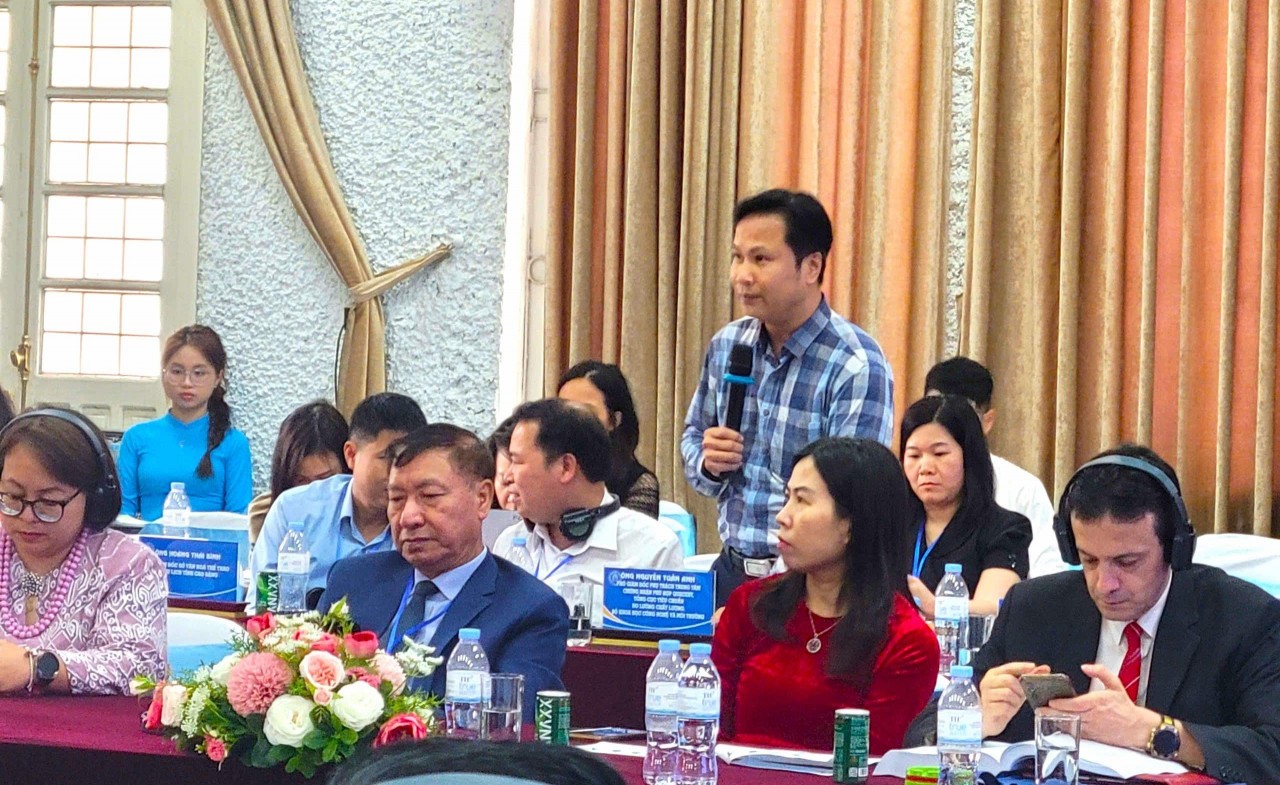Vietnam's Halal Industry: A Lucrative Opportunity in MENA
| Egypt Remains as Vietnam's Leading Trading Partner in North Africa | |
| Elderly Care Industry Potentials Left Untapped |
The size of MENA's Halal food market is expected to increase from US$ 192.6 billion in 2022 to more than US $228 billion in 2024. The strong growth of this market is driven by two key drivers, namely the growing Muslim population across MENA and the growing preference and demand for packaged and ready-to-eat Halal convenience products. Consumer demand for premium and value-added Halal foods is also contributing to the growth of the MENA market.
 |
| The promotion booth of the Vietnam Trade Office in Malaysia at the Halal International Expo 2024 (Photo: VNA). |
Most MENA countries have laws that are strongly religious. When it comes to food, Halal is a standard based on Islamic law, which has special regulations related to diet, food origin and processing according to a separate process. Halal in Arabic means "permission" or "legality", as opposed to Haram (not allowed, forbidden).
The Halal standard includes regulations, which demonstrate suitability for Muslim consumers. Halal certification is a basis for proving that Halal food production and processing facilities comply with the provisions of Islamic law.
That each country applies different Halal certification processes and the lack of standards and guidelines in this process are among the main issues facing the global Halal food industry.
 |
| To access the Halal market, Vietnamese businesses must not only meet strict regulations on Halal food standards and certification, but also improve their competitiveness (Photo: congthuong.vn). |
| Halal food is defined as food without ingredients that the Muslim community is not allowed to consume. According to the provisions of Islamic law, Halal food is produced, processed, preserved and distributed according to strict procedures on food hygiene and safety. Therefore, Halal foods are certified as products that meet many criteria of food hygiene and safety, ethics in the processing process, quality, green, clean, and ensure health. Halal food includes cattle meat, poultry, seafood, fruits, vegetables, dairy products, cereals, cooking oils, fats, confectionery, etc. Cattle meat, poultry, and seafood are the basic segments and account for the majority of the market share in the Halal food market. In particular, Halal standard meat is extremely important for Muslim consumers. Demand for Halal standard meat, including beef, lamb, chicken, and seafood, has always been high. The Halal food market requires strict certification to ensure compliance with Halal standards. To meet this criterion, Halal food must be produced and processed through strict hygiene and quality control processes. |
Talking to VNA reporters in the MENA area, Vietnamese Ambassador to Egypt Nguyen Huy Dung said that Egypt is a Muslim country with about 98 million parishioners, a very large halal food market.
Dung assessed that Egypt's Halal food regulations are still relatively open. Egypt's Halal food quality management agencies only control standards for cattle, poultry and livestock and poultry products.
From 2026, Egypt will start applying Halal standards to imported dairy products. Ambassador Nguyen Huy Dung believes this is a very good opportunity for Vietnamese businesses to exploit and bring goods into Egypt in the coming time.
On the other hand, Saudi Arabia is the largest Halal food market in MENA with a market size expected to reach US $60.03 billion in 2024. The growth rate of this market is forecast to reach 3.8% per year in the period 2023-2029. The largest segment of Saudi Arabia's Halal food market is seafood, with an estimated value of US $10.63 billion in 2024.
When speaking to VNA reporters, Vietnamese Ambassador to Saudi Arabia Dang Xuan Dung said that with a population of more than 34 million people and Islam as the national religion, foods in the Saudi Arabian market are 100% Halal food.
Yet, Saudi Arabia depends on 85-95% of imported Halal food products, so Vietnamese businesses have many opportunities to export food products and food production materials such as lamb, goat, beef, processed seafood, instant noodles, beverages, even confectionery and cosmetics .
Dung clearly stated that the prerequisite for accessing the Saudi Arabian Halal food market must be Halal products and have Halal certification certificates. The process of raising, producing, slaughtering and processing animals must comply with the provisions of Islamic Shariah law. The second condition is that the Halal certification for the product must be recognized by the Halal certification body of Saudi Arabia.
According to the Ambassador, despite many opportunities, some challenges remain. Vietnamese enterprises also do not have much experience in breeding and producing Halal food, weak human resources and low expertise, limited customer trust, investing in Halal food production lines is often costly while the payback is slower than the production of other conventional products. Halal certification in the world is currently not uniform between Muslim countries, causing Vietnamese businesses to simultaneously access many different types of Halal certification for the same product when entering different markets, thereby increasing costs, he shares.
 | To Unleash Vietnam Sea's Untapped - Potential Economy With over 3,260 kilometers of coastline, over 3,000 large and small islands, Vietnam is considered as one of the countries with adventageous potential to expand... |
 | Ambassador Olivier Brochet: Huge Development Potential in Vietnam - France Relations The agreement of the two countries' leaders to upgrade the relationship to a Comprehensive Strategic Partnership is a natural result of a relationship with historical ... |


